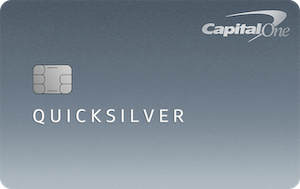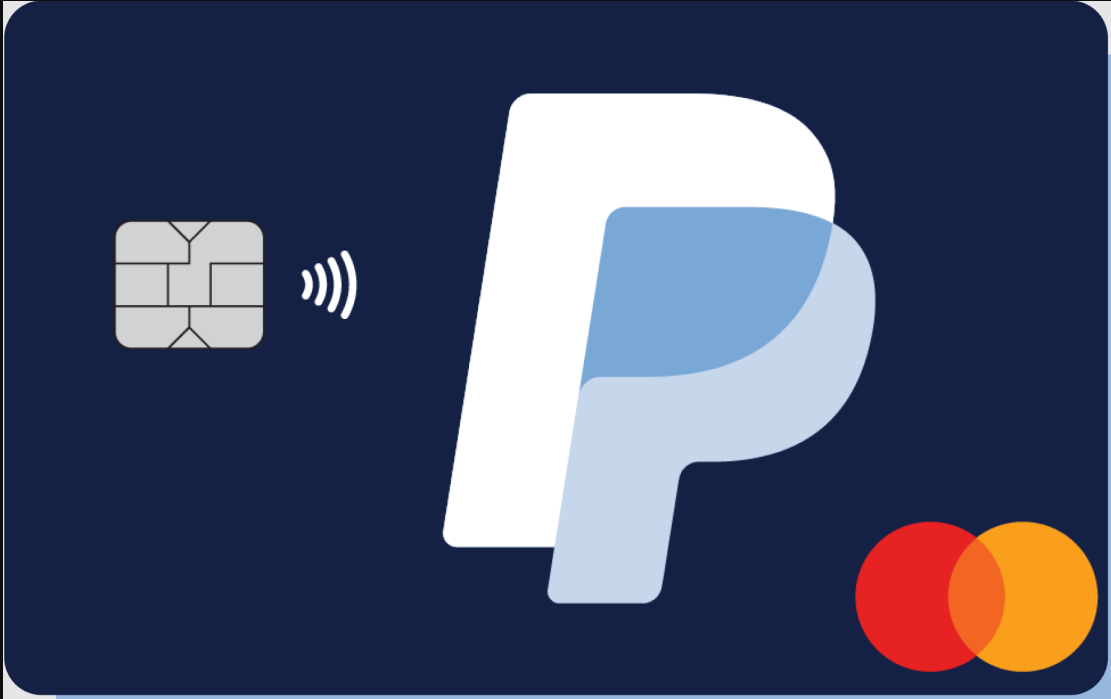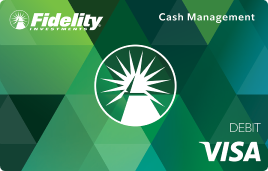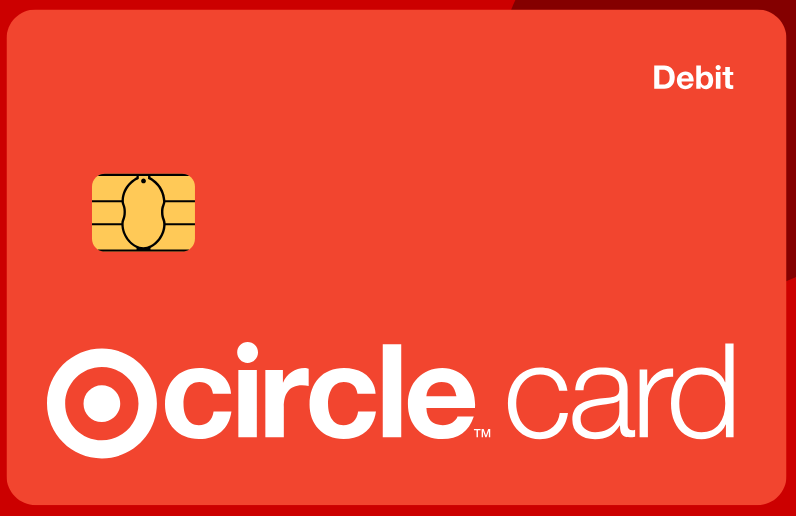- myFICO® Forums
- Types of Credit
- Student Loans
- Re: Subsidized Loan question
- Subscribe to RSS Feed
- Mark Topic as New
- Mark Topic as Read
- Float this Topic for Current User
- Bookmark
- Subscribe
- Mute
- Printer Friendly Page
Subsidized Loan question
Is your credit card giving you the perks you want?
Browse credit cards from a variety of issuers to see if there's a better card for you.
- Mark as New
- Bookmark
- Subscribe
- Mute
- Subscribe to RSS Feed
- Permalink
- Report Inappropriate Content
Subsidized Loan question
I've got some small subsidized loans coming my way to cover excess that my pell grant will not when I start my first term in July. I've actually saved up enough money to cover everything, but figured I'd take the loans in order to keep my savings. I plan to pay them down rather quickly into a prime paid debt ratio in order to boost score. My question is do they report the same as a revolving account in the sense that if I pay them to the point where there is no monthly minumum payment, will they still report as paid on time each month? I've got an installment loan already that only reports to EX, and I've paid it down to the point where I don't have another payment for the next 4-5 months, and was hoping the federal subsidized loans would do the same.
Any info is appreciated!







Drawer-dwellers:




FICO SCORE 8 (1/1/26)



1 paid CO remaining on EX and EQ until 6/2026
- Mark as New
- Bookmark
- Subscribe
- Mute
- Subscribe to RSS Feed
- Permalink
- Report Inappropriate Content
Re: Subsidized Loan question
@GreyvyTrain wrote:I've got some small subsidized loans coming my way to cover excess that my pell grant will not when I start my first term in July. I've actually saved up enough money to cover everything, but figured I'd take the loans in order to keep my savings. I plan to pay them down rather quickly into a prime paid debt ratio in order to boost score. My question is do they report the same as a revolving account in the sense that if I pay them to the point where there is no monthly minumum payment, will they still report as paid on time each month? I've got an installment loan already that only reports to EX, and I've paid it down to the point where I don't have another payment for the next 4-5 months, and was hoping the federal subsidized loans would do the same.
Any info is appreciated!
assuming the loan is active and the due date has been pushed back, yes it should report as paid every month
are the loans not deferred until you get out of school though, so no due date, just in deferment?
if you will be able to pay ahead and push back the due date is an option I saw with Nelnet, not sure about your servicer whoever that will be



Current FICO 8:






























- Mark as New
- Bookmark
- Subscribe
- Mute
- Subscribe to RSS Feed
- Permalink
- Report Inappropriate Content
Re: Subsidized Loan question
@GZG Sorry for such a late reply.
The first loan came through today. The due date isn't until 2030 for my first estimated payment. They are suppposed to be deferred I guess with no interest until I am no longer in school for 6 months I believe?
I just didn't know if it is going to continally hurt my score for a high loan amount/utilization if I am not paying it down, which why wouldn't I use the years of zero interest.
My servicer is CRI.







Drawer-dwellers:




FICO SCORE 8 (1/1/26)



1 paid CO remaining on EX and EQ until 6/2026
- Mark as New
- Bookmark
- Subscribe
- Mute
- Subscribe to RSS Feed
- Permalink
- Report Inappropriate Content
Re: Subsidized Loan question
@GreyvyTrain wrote:@GZG Sorry for such a late reply.
The first loan came through today. The due date isn't until 2030 for my first estimated payment. They are suppposed to be deferred I guess with no interest until I am no longer in school for 6 months I believe?
I just didn't know if it is going to continally hurt my score for a high loan amount/utilization if I am not paying it down, which why wouldn't I use the years of zero interest.
My servicer is CRI.
as a rebuilder, it's far less important than a clean profile in terms of FICO scoring
so it's not optimal in terms of FICO scoring, but because the realistic cap on your FICO score is say ~730ish, I would just make the decision financially as opposed to based on FICO scoring
if you have the money and want to pay them off do so, if you don't, I wouldn't worry about it.



Current FICO 8:






























- Mark as New
- Bookmark
- Subscribe
- Mute
- Subscribe to RSS Feed
- Permalink
- Report Inappropriate Content
Re: Subsidized Loan question
@GZG Thanks for the insight. The loans aren't for much, about 3500$ a year after my Pell Grant. I'm doing well financially, so I should be able to keep them managed and pretty low, just was curious as to how they'd affect my current profile. I assume that since the due date is so far out, they will report as up to date and paid each month regardless if I pay ahead of time or not?







Drawer-dwellers:




FICO SCORE 8 (1/1/26)



1 paid CO remaining on EX and EQ until 6/2026
- Mark as New
- Bookmark
- Subscribe
- Mute
- Subscribe to RSS Feed
- Permalink
- Report Inappropriate Content
Re: Subsidized Loan question
Why would you use student loans to preserve liquidity?
That's probably one of the worst ways to do it.
- Mark as New
- Bookmark
- Subscribe
- Mute
- Subscribe to RSS Feed
- Permalink
- Report Inappropriate Content
Re: Subsidized Loan question
@IsambardPrince Can you explain what you mean, please?







Drawer-dwellers:




FICO SCORE 8 (1/1/26)



1 paid CO remaining on EX and EQ until 6/2026
- Mark as New
- Bookmark
- Subscribe
- Mute
- Subscribe to RSS Feed
- Permalink
- Report Inappropriate Content
Re: Subsidized Loan question
@GreyvyTrain wrote:@IsambardPrince Can you explain what you mean, please?
Sure!
If you have plenty of money, might it not make more sense to:
1. Wait and see if you even need a loan at all and only take one then if you do? You don't need a bunch of non-bankruptable student loans piling up that you're not even using. I wouldn't go near a student loan with a 23.5 foot pole.
2. If you need a small amount of money, then it may make sense to get it from a less risky loan product, or just work more and decide that life will be a little crappy for a while.
I see so many people get out of college going "I wish I didn't have Sallie Mae calling me every day." You know, decades later, when they paid more than twice what they borrowed, so far, and they still owe more. Student loan people coming after their Social Security checks and their 85 year mother's house.
Loans are something that you need to consider long and hard, especially ones that don't go away in bankruptcy, if anything happens later.
They'll sit there printing off a ream of fire engine red "LATE LATE LATE" tearing up your credit reports, interest piling up. It's terrible.
Doctors graduate with so much student loan debt that they have to live like they're broke until they're my age. A lot of people just treat it like they've adopted a pet and make interest payments forever.
Student loans are the most sickening thing I think I've ever seen in my life. And some people just keep racking them up thinking there will never come a day.
College education has a 9% Compound Annual Growth Rate in tuition alone, then there's all these junk fees. They do this because most people going there are young and don't see the problem with indebtedness.
College expenses have decoupled from reality because the government ensures that someone pays, and so minimum wage is $15 an hour and they tax that. How much does college debt end up being? I just got done listening to someone who spent $110,000 in student loans studying Psychiatry. She's in her fifties, never used it, and makes $33,000 a year.
So the school keeps jacking everything up and spending money frivolously on themselves. They know that every year another batch turns 18 and they'll get those people too.
I got to see some of these bills, just from a community college my spouse was enrolled in when he was an F-1 student. It cost almost $10,000 to do one semester at a community college for him in 2019-2020.
They're just massive profit centers. I hope you at least picked something where the money will be good and the skills will be in demand. His stupid sister told him to study "English" and this is how much it cost. He's from a country where he speaks English!
Can you even imagine having this crap going on while your finances are already horrible, the government wouldn't let him work yet, and if he drops out before the government processes your petition, he would have accrued unlawful presence?
It almost gave me a heart attack. That and everything else for about five years.
I was watching him in college and I quickly surmised it wasn't a good environment for him. He was basically just scraping by and they were stringing him along for more money.
When something doesn't work, you need to cut ties and cut losses. He's a good person and he's a hard worker and that will get you by better than some of these debt-laden "degrees" will.
- Mark as New
- Bookmark
- Subscribe
- Mute
- Subscribe to RSS Feed
- Permalink
- Report Inappropriate Content
Re: Subsidized Loan question
Hey! Thanks for all that insight. A lot to take in here, so I'll do my best I guess at explaining my situation.
I've been working in Tech since about 2011, I'm currently 37. Problem is, with the whole "anyone can do IT" boom that happened, my field of "expertise" got diluted with a lot of people who studied a IT Help Desk course for a summer. Without a degree, I haven't really been able to transition fields, even with all of my experience. I'm currently going for a BS Computer Science with a concentration in Software Engineering. I'm hoping that coupled with my years of experience and now building this extra foundation of knowledge with a degree, I can break out of the "computer career dot com" jobs and get into a field where my hard work and knowledge is actually appreciated. That, and being able to say I'm the only one in my family who ever earned a degree would be rewarding as well.
I currently make good money, and have what I would consider a strong savings that I contribute about 25-50% of my weekly pay to. I've learned to manage my money very well and am extremely frugal when it comes to uneccessary spending. I've never even had a car payment, because I always purchased used and for cash that I saved up - and always something that has lasted me 5+ years, nice little 90s-2000s model Toyotas or Hondas.
Currently with school, I qualified for $7,398 annually in Federal Pell Grant Funds, which comes down to $1,233 per-term at 6 terms a year. The Subsidized Loan equates to $3,500 a year, about $580 goes toward each term. Per term cost where I am attending is $1,980 per term, leaving me a small amount out of pocket leftover. While I could outright pay that cash every term, and plan to pay down the loan each term when I'm able to and without touching my savings, there may come a time when I'm not financially able to without dipping into savings or money I'm putting towards bills or paying credit cards to keep UTI basically under 5%. I'd rather have the option of that loan helping to cover, and not need it, than to need it and not have it. Currently the loan payments are deffered with no interest until 6/18/2028 or until I'm no longer in school halftime or more. If I was to become unemployed, I would have my savings to fall back on, and the loans, and wouldn't have to put my education on hold.
I figured at $3,500 a year, and interest free unless I quit school, it is a very manageble amount. I'm also going for a degree in a field I'm already versed in, and should do nothing but help to boost me up in that field. I'm also still very new to realizing the ins and outs of credit, so I could be wrong and making a mistake, but I put a lot of thought into all of this and feel pretty good about it. I tend to put a lot of thought into things, always looking ahead at the future, as I don't want to go back to being a paycheck to paycheck person, and I have my wife I'd like to provide the most comfortable life for as well now.
Let me know if there are any flaws in my thinking, as I'm always looking for outside perspectives, and definitely appreciate feedback!







Drawer-dwellers:




FICO SCORE 8 (1/1/26)



1 paid CO remaining on EX and EQ until 6/2026
- Mark as New
- Bookmark
- Subscribe
- Mute
- Subscribe to RSS Feed
- Permalink
- Report Inappropriate Content
Re: Subsidized Loan question
Well, you seem to have a lot better head on your shoulders than a lot of these people that go in and put the entire thing on loans, study something useless, go out of state to make it cost twice as much, and don't even see if they're eligable for the grants that don't need paid back and take the really awful private loans, which are expensive as all get out.
Yes, you need to keep those "subsidized" loans to a bare minimum and remember that deferring them just means that they sit there and grow with interest while you're in school until you get done, and compounding interest, deferred, is a dangerous thing. A lot of people get into a mindset where if it doesn't have to be paid back for 6-7 years then it's not a problem. That's a bad attitude and that's why they're still doing it in old age, especially if something doesn't pan out.
You need to assess the market and look for skills that are in demand. Anything computer-related changes constantly and by the time you're done studying it, it's time to go learn more.
My advice is to not do what other people are doing, because as you've found out, that leads to a diluted labor market where employers can lay off and pay whatever they want while they insult you on your way out the door.
The tech industry figures 40 is "old age" and while it's illegal to kick someone out for being 40, they just do it anyway and nobody ever punishes them and they get away with it. Tell me how many people are over 40 at Microsoft, AMD, and Intel.
Not many.
So that means you have to get really inventive so they look past a guy that wants paid more and may cost their group plan some benefits money.
If you're looking at a career in programming, I don't really recommend modern languages too much, I recommend looking at odd things that businesses and government programmed a lot of things in "back in the day" and all of the people who were good at that are in the nursing home. During COVID, all those state unemployment departments nearly died because of the surge of people applying and the fact that there was a lot of FORTRAN and COBOL on the backend, and they were calling people my dad's age out of retirement and paying them twice what they made before.
Look for an area that people are having trouble hiring in and nobody is gaining those skills. That is how you make sure that you're not selling yourself short and competing with other laborers who are a dime a freaking dozen.
I think that low thousands of student loan debt is probably more sustainable, per year, than what many people do. Like I said, take the grants, don't spend a dollar of loans or your own money until those are gone. If you can get into some sort of "crash course" where an employer that wants to hire you later will pay for some of this because they're that desperate, that may even get you out of taking on any loans at all.
Loans are evil, a sometimes necessary evil, but certainly not an "I should take on $10,000 a semester at 6% to study English" kind of an evil, and I'm glad that you're not one of those people doing that.
There's a lot of people in college that aren't smart. The colleges don't care as long as you're spending money. They don't care whose money it is or what you have to pay back later because it's not their department. I know so many people that studied what they wanted and then found out there was no employment to back that up, and this isn't a new problem. In 1992, my neighbor Lynn was 19 years old and studying Philosophy.
When he graduated he was still sweeping popcorn off the floor at the movie theater. He had to go back to school and take on more debt to study an engineering course, which should have happened first. I think it's great when people go back and study what they want when they know what it costs and know that it may not help them in their career, because more education means you start seeing the world differently than other people, but you should strike at the "I need a paycheck." problem first.
One of the ways people need to see the world differently than other people is debt. Some people think lots of debt, and a tiny income is fine. This is America, and they have a right to be wrong. But they shouldn't expect that I'll pay for this wrongheadedness when the debt becomes a vexatious problem for them later.
Accumulating debt for no justifiable endgame is just stupid, and people who go down that road, they'll be living on a McDonald's worker salary even if they manage to make $50 an hour, because of all the credit cards and student loans, and they had to buy a million dollar McMansion and have a Tesla sitting outside.
I think Lynn benefited from the fact that the 90s were an easier time to seriously mess things up and land on your feet and that he was young enough to recover from his mistakes of youth.
In the labor market, you are "at war" with every other person who knows what you know, so you need to have marketable skills that they don't, so they can't compete on your level anymore.